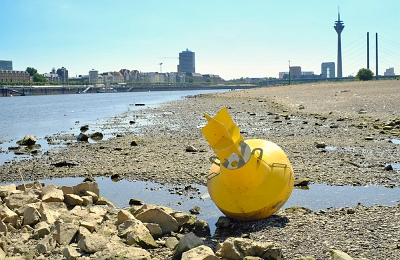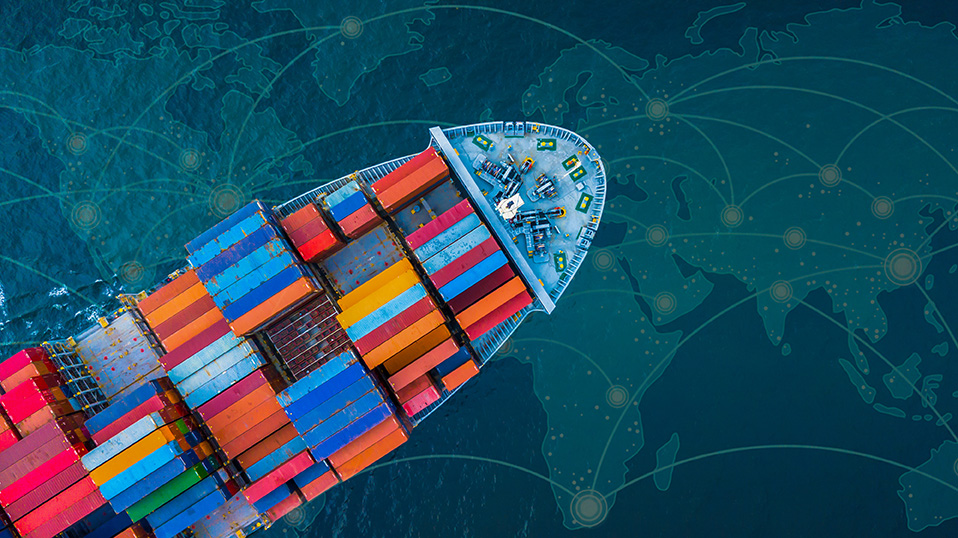 As sustainability becomes increasingly crucial, companies must analyse their responsibilities across the entire value chain to ensure future viability. We assist you in crafting robust sustainability strategies and in providing structured, transparent reporting on your activities. This transparency is essential, as key stakeholders – including clients, financial market participants, and legislators – are demanding greater accountability and clarity.
As sustainability becomes increasingly crucial, companies must analyse their responsibilities across the entire value chain to ensure future viability. We assist you in crafting robust sustainability strategies and in providing structured, transparent reporting on your activities. This transparency is essential, as key stakeholders – including clients, financial market participants, and legislators – are demanding greater accountability and clarity.
Sustainability aspects are evolving from non-financial to financial risks, prompting the financial market to pay more attention to environmental, social, and governance (ESG) criteria when making investment decisions. Investors and insurers, in particular want to know whether a company's business activities are exposed to higher risks due to certain sustainability aspects, especially climate change, in the short, medium, and long term. Clients and the general public also have increasingly high expectations for a company's sustainable orientation.
We work with you to design a holistic sustainability strategy for your company, setting targets and measures that take into account the entire environment, including regulatory requirements and demands from the financial sector. We demonstrate how to integrate sustainability into your corporate strategy and outline the requirements for effective ESG governance. We view this as the cornerstone of long-term success.
Sustainability check by FutureCamp and ARRK Engineering for manufacturing companies:
Our comprehensive, company-specific sustainability check provides early insights into your company’s sustainability status and identifies necessary actions. The insights gained serve as the foundation for your sustainability strategy and inform the required reporting. Further information on the sustainability check can be found here on our website. (available in German only).
 Hannah Powarcinsky has been a consultant at FutureCamp since 2011. As Head of Sustainability Services, she is primarily responsible for the sustainability business area and its strategic and content development. An experienced project manager, Hannah has successfully led numerous projects in sustainability strategy and reporting, carbon footprinting and climate strategy. Her expertise also extends to designing and organising workshops and training sessions in these fields, as well as speaking at specialist conferences.
Hannah Powarcinsky has been a consultant at FutureCamp since 2011. As Head of Sustainability Services, she is primarily responsible for the sustainability business area and its strategic and content development. An experienced project manager, Hannah has successfully led numerous projects in sustainability strategy and reporting, carbon footprinting and climate strategy. Her expertise also extends to designing and organising workshops and training sessions in these fields, as well as speaking at specialist conferences.
Highlight Project:
ASK Chemicals GmbH
Development of a sustainability strategy using a bottom-up approach including the involvement of external and internal stakeholders
 Sustainability-related reporting obligations are diverse and rapidly evolving. We help you navigate which requirements are relevant to your company, when and in what form they apply, and what steps you need to take to fulfill them.
Sustainability-related reporting obligations are diverse and rapidly evolving. We help you navigate which requirements are relevant to your company, when and in what form they apply, and what steps you need to take to fulfill them.
Sustainability reporting is shifting from an optional practice to a mandatory requirement
The European Union's Corporate Sustainable Reporting Directive (CSRD), which came into force in January 2023, mandates that companies publicly report on sustainability management and key metrics in an additional section of their annual management report.
The scope of companies affected by the CSRD is extensive and progressively expanding:
- Since January 1, 2024: Large capital market-oriented companies with over 500 employees.
- From January 1, 2025: All companies that meet two of the following three criteria: at least 250 employees in the EU, a balance sheet total exceeding €25 million, or a turnover over €50 million.
- From January 1, 2026: Capital capital market-oriented SMEs.
- From January 1, 2028: Non-EU companies.
Reporting is based on the new European Sustainability Reporting Standards (ESRS) (available in German only).
FutureCamp supports you with the following tasks:
- Knowledge Transfer and Regulatory Compliance: Identifying and fulfilling regulatory requirements
- Organisational integration
- Embedding sustainability within your organization
- Establishing necessary governance structures
- Preparing sustainability reports in line with mandatory and voluntary frameworks (e.g. EU CSRD, Global Reporting Initiative - GRI SRS, German Sustainability Code - DNK)
- Supporting upstream processes such as:
- Stakeholder participation
- Materiality analysis
- Gap analysis and work plan creation
- Establishing data retrieval processes
- Introducing a CSR management system
- Assisting in selecting appropriate ESG/CSR software
- Coordination of external service providers: Managing communication agencies, translators, and other external partners
- Audit process support: Accompanying and supporting audit processes
Sustainability at FutureCamp:
To uphold our sustainability standards and transparently report on our progress and areas for improvement, we have regularly published a declaration of compliance with the German Sustainability Code (DNK) since 2016. Our declaration for the 2022 reporting year is publicly available on the DNK website following an audit by the DNK office. DNK website following an audit by the DNK office.
We are proud to have once again achieved "Silver" status in the EcoVadis rating (available in German only).
 Climate change is no longer an abstract concept – physical risks such as heat waves, heavy precipitation and droughts, as well as transitional risks arising from new legislation, CO2 pricing and market changes, can directly and indirectly threaten the business models of many companies.
Climate change is no longer an abstract concept – physical risks such as heat waves, heavy precipitation and droughts, as well as transitional risks arising from new legislation, CO2 pricing and market changes, can directly and indirectly threaten the business models of many companies.
A well-founded climate risk analysis systematically shows where your company is already vulnerable along the entire value chain or could be at risk in the future, taking into account several climate change scenarios. It provides a solid foundation for effectively managing risks and meeting transparency requirements such as CSRD, EU taxonomy or TCFD-compliant reporting.
At the same time, the analysis opens up opportunities: it helps identify new business models, drive sustainable innovation and position your company for the future in the market.
A climate risk analysis is not an end in itself – use it as a strategic management tool: strengthen your resilience, ensure reporting compliance and actively shape the sustainable transformation of your business.
 As a project manager at FutureCamp, Isabell Stöhr primarily supports clients in sustainability reporting with a focus on EU CSRD and VSME sustainability reporting requirements and climate risk analysis. She also works in the field of greenhouse gas accounting.
As a project manager at FutureCamp, Isabell Stöhr primarily supports clients in sustainability reporting with a focus on EU CSRD and VSME sustainability reporting requirements and climate risk analysis. She also works in the field of greenhouse gas accounting.
 The importance of supply chain transparency and responsibility is growing. German legislators have introduced the Supply Chain Due Diligence Act (LkSG), effective since 2023.
The importance of supply chain transparency and responsibility is growing. German legislators have introduced the Supply Chain Due Diligence Act (LkSG), effective since 2023.
As of January 1, 2024, companies with more than 1,000 employees in Germany are required to meet due diligence obligations concerning human rights and environmental protection across all production steps of their goods and services. This includes reporting publicly on these efforts annually and taking countermeasures if and when violations are identified. This pertains to both direct and indirect suppliers.
Additionally, the EU Deforestation Regulation (EUDR) (available in German only) mandates that, from December 30, 2025 for non-SME market participants and traders and June 30, 2026 for SMEs, companies placing certain raw materials and their derivatives on the EU market must prove and document that these do not originate from deforested areas.
Furthermore, companies must consider their upstream and downstream value chains as part of CSRD reporting.
We assist your company in navigating these regulatory requirements, identifying how you are affected, and analysing any gaps in compliance. We also support participation in supplier assessments and audits, such as EcoVadis or NQC.
 Felix Rau is a Senior Consultant at FutureCamp. His responsibilities include developing sustainability strategies and handling both voluntary and mandatory sustainability reporting for public clients and private sector companies. He specialises in the Corporate Sustainable Reporting Directive (CSRD), the EU taxonomy, and various voluntary standards (GRI, DNK, etc.). Additionally, he assists companies with sustainability ratings, such as EcoVadis and NQC. Felix also advises organisations on the development and approval of climate protection projects across all project phases.
Felix Rau is a Senior Consultant at FutureCamp. His responsibilities include developing sustainability strategies and handling both voluntary and mandatory sustainability reporting for public clients and private sector companies. He specialises in the Corporate Sustainable Reporting Directive (CSRD), the EU taxonomy, and various voluntary standards (GRI, DNK, etc.). Additionally, he assists companies with sustainability ratings, such as EcoVadis and NQC. Felix also advises organisations on the development and approval of climate protection projects across all project phases.
Highlight Project:
Lichtgitter GmbH
Support in implementing the law on corporate due diligence to prevent human rights violations in supply chains (Supply Chain Due Diligence Act) - LkSG, including setting up risk management with risk analyses, drafting a policy statement on respect for human rights and process documentation.
 The Sustainable Finance Package, a key component of the European Green Deal, has introduced critical instruments to equip the financial market with reliable information for green investment and financing decisions. Central to this is the Taxonomy Regulation, which defines the criteria for classifying financial investments as "sustainable."
The Sustainable Finance Package, a key component of the European Green Deal, has introduced critical instruments to equip the financial market with reliable information for green investment and financing decisions. Central to this is the Taxonomy Regulation, which defines the criteria for classifying financial investments as "sustainable."
Moving forward, financial product providers will be required to disclose for each product whether and to what extent the taxonomy was used to determine investment sustainability, and which environmental goals these investments contribute to. To facilitate this, the financial market depends on companies' taxonomy declarations, which must report on the "greenness" of their economic activities. This reporting is to be included in the management report as part of the CSRD reporting.
Drawing on our expertise, we offer comprehensive support to your company throughout the entire reporting process. Our assistance spans from the initial screening to the formulation of the taxonomy statement, and we provide support during the audit phase. This ensures that your company can effectively navigate the complexities of taxonomy reporting and meet the evolving regulatory requirements in sustainable finance.
Highlight Project:
Südwestdeutsche Salzwerke AG
We provided comprehensive support to Südwestdeutsche Salzwerke AG in two key areas of sustainability management: conducting a materiality analysis for sustainability reporting and implementing the requirements of the EU sustainable finance taxonomy.
